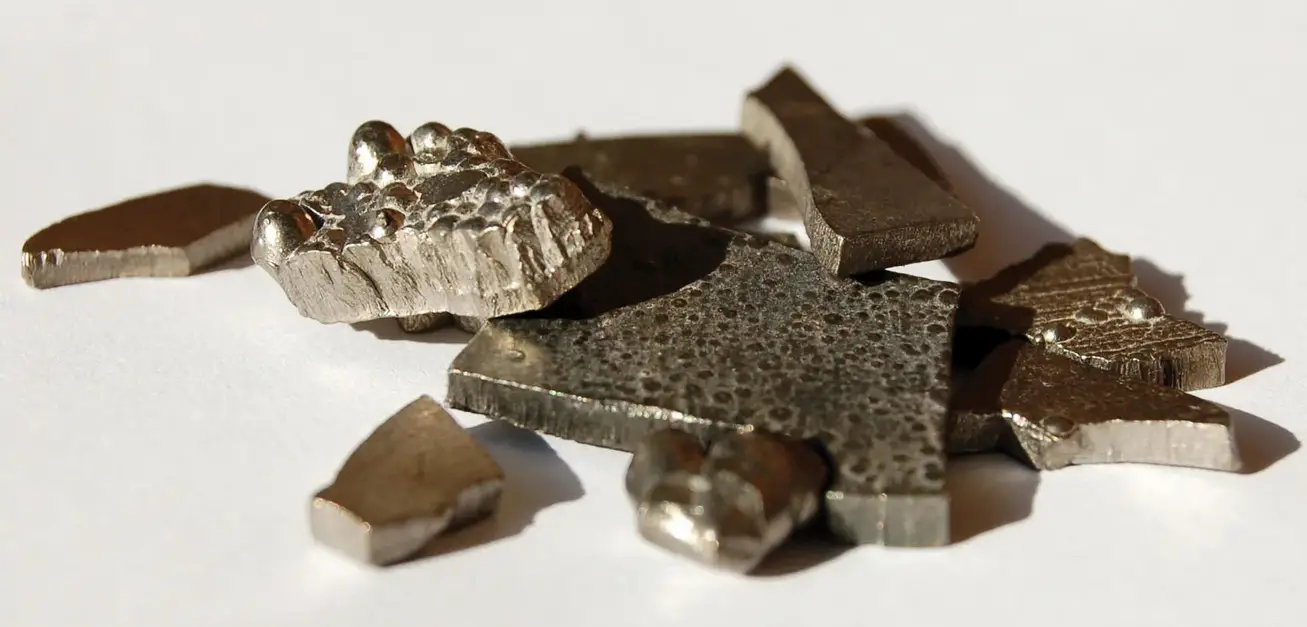Cobalt is a metal used in coins, jewelry, and even as a colorant in glassware and pottery. It is essential in many industrial and technological applications, but is it also a precious metal? The answer depends on a variety of factors.
Is Cobalt a Precious Metal?
No, Cobalt is not precious metal. Nine precious metals are iridium, rhenium, ruthenium, rhodium, palladium, osmium, platinum, silver, and gold. Cobalt does not have high commodity price levels, such as precious metals.

Cobalt can be classified as a base or noble metal at its basic level. Base metals are not rare or valuable, usually characterized by their low cost and ready availability. Examples include nickel, zinc, iron, and copper. Noble metals are considered more expensive due to their rarity and difficulty of extraction; gold and silver are classic examples of noble metals. Cobalt could be classified as either type depending on its grade or concentration in the mineral form from which it is mined.
In terms of potential value as an investment commodity, cobalt may fall somewhere between base metals and noble metals – though its desirability would depend mainly on market forces such as supply and demand. For example, since cobalt is an essential component for producing lithium-ion batteries (which are increasingly used to store energy in electric vehicles), the metal’s price could potentially increase if demand for electric cars rises significantly over time. This means that cobalt could become relatively more precious than other base metals if its overall importance to industry increases significantly enough to cause prices to rise accordingly.
Cobalt characteristics:
- High melting point: Cobalt has a high melting point, making it suitable for high-temperature applications.
- Hardness: Cobalt is a hard and strong metal, making it ideal for cutting and wear-resistant applications.
- Corrosion resistance: Cobalt has good corrosion resistance, making it useful in corrosive environments.
- Ductility: Cobalt is ductile, making it easy to form and shape into various products.
- Magnetic properties: Cobalt is ferromagnetic, making it useful in magnetic applications such as electric motors and generators.
- Biocompatibility: Cobalt has biocompatibility, making it suitable for medical implants and devices.
- High thermal conductivity: Cobalt has a high thermal conductivity, making it useful in heat transfer applications.
- Availability: Cobalt is widely available, making it a cost-effective material for many applications.
From a practical standpoint, however, many collectors do not consider cobalt a “precious” metal – at least not when compared with gold or silver – because its use is primarily industrial rather than decorative or ornamental. Indeed, the primary purpose of most objects made from cobalt is practical rather than aesthetic. For instance, pipes made from this metal are usually intended for carrying water or other liquids rather than being desirable artwork pieces themselves. Similarly, coins made from cobalt have historically been issued solely for monetary purposes rather than artistic reasons; such coins were generally minted with little attention given to their design quality or aesthetic appeal.
Overall, while strictly speaking, cobalt could be considered “precious” in some contexts – mainly due to its increasing industrial importance – it certainly cannot compare with gold and silver regarding traditional notions of beauty and collectibility. For this reason alone, it seems unlikely that cobalt will join the ranks of actual “precious” metals anytime soon – despite any potential market-driven changes in its price over time – although only time will tell what the future may hold for this versatile and increasingly sought-after metal!
Please read our article “What are Precious Metals.” If you want to know more about how to invest in precious metals, read our extended version article.
If you like bills and coins, you should learn more about Gold and Silver IRAs. You can protect your retirement fund if you invest in IRA precious metals. Investors with gold IRAs can hold physical metals such as bullion or coins. Get a free pdf about Gold IRA.
GET GOLD IRA GUIDE
If you do not want to own them in physical form precious metals, you can trade gold, silver, and metals as CFD with the minimum commission:
























